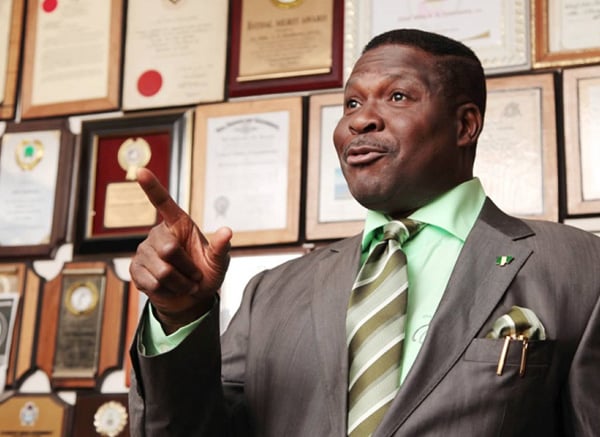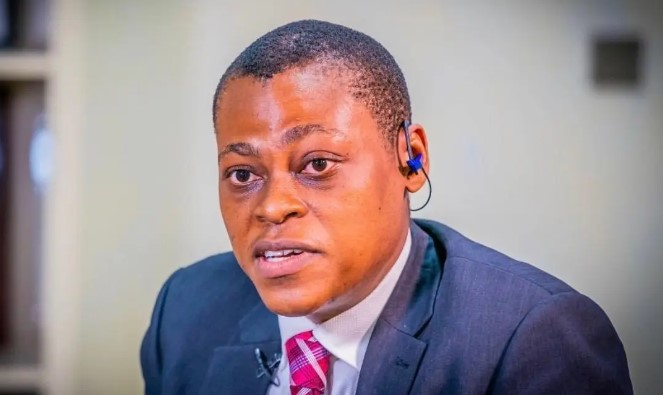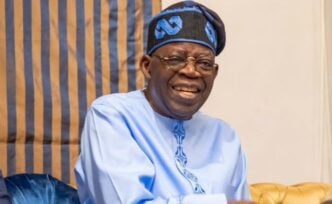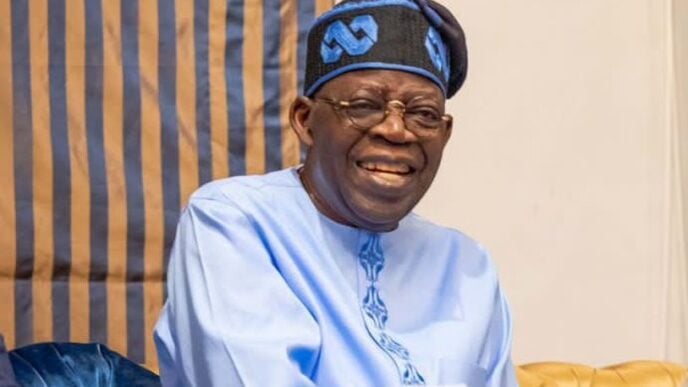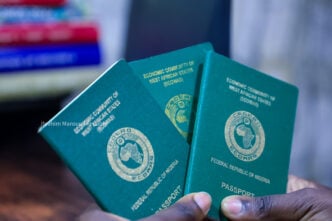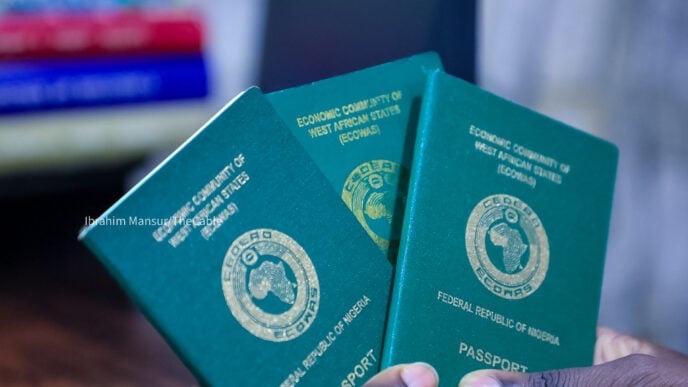Mike Ozekhome
BY SHOLA ADEBOWALE
In the complex world of international property transactions, where substantial assets change hands based on documentation and legal representations, a recent case involving a disputed London property has raised significant questions about due diligence, professional responsibility, and institutional safeguards in Nigeria’s legal system. The matter, which came before a UK property tribunal in September 2024, centres on a North London residence at 79 Randall Avenue originally purchased in 1993. The dispute involves Mike Ozekhome, SAN, a prominent Nigerian legal practitioner known for his advocacy on issues of governance and human rights, and competing claims over ownership of the property valued in the millions of pounds. The tribunal’s findings, delivered by Judge Ewan Paton in Case No: REF/2023/0155, have sparked broader discussions about property law vulnerabilities and professional standards within Nigeria’s legal community.
The controversy began when Ozekhome sought to register a property transfer executed in his favour by someone identified as “Mr Tali Shani” in 2021. However, an objection was lodged by a party claiming to be “Ms Tali Shani,” who asserted she was the rightful registered proprietor. This competing claim triggered a tribunal investigation that would ultimately reveal a more complex situation than initially apparent. What followed was a legal drama that exposed layers of questionable documentation, conflicting testimonies, and allegations of identity fabrication that would eventually draw the attention of Nigerian federal authorities and anti-corruption agencies.
According to the tribunal’s findings, neither party could adequately prove their claimed ownership. Instead, the evidence pointed to the late General Jeremiah Useni as the actual owner of the property, which he had allegedly purchased in 1993 using the alias “Tali Shani.” This revelation formed the foundation of the tribunal’s ultimate determination regarding the disputed ownership and raised uncomfortable questions about property acquisition during Nigeria’s military era. The use of aliases in high-value property transactions, particularly by public officials during periods of military rule, has long been a subject of concern for transparency advocates and anti-corruption campaigners in Nigeria.
Advertisement
The tribunal conducted an extensive examination of the evidence presented by both parties, with proceedings that stretched over multiple hearings and adjournments. Central to the case was the identity of “Ms Tali Shani”, who never showed up before the tribunal, despite multiple adjournments on her instance. Her lawyers, who had in 2024 told the tribunal that she was hospitalised, later produced documents claiming she had died in Nigeria. This shift in the narrative, from claims of hospitalisation to assertions of death, raised immediate red flags for the tribunal and demonstrated the evolving nature of the claims being advanced. The failure of this supposedly central figure to ever appear before the tribunal, despite being the named applicant in the case, became one of several factors that undermined the credibility of the claims being made on her behalf.
The tribunal’s investigation revealed significant inconsistencies regarding the identity and existence of the person claimed to be “Ms Tali Shani.” According to reports of the proceedings, the tribunal found that the documentation presented to support this individual’s existence could not be verified as authentic. An obituary notice was created for “Ms Tali Shani” stating that she died on November 30, 2024, which was listed as a Sunday. However, November 30, 2024, was actually a Saturday, with the Sunday falling on December 1. This mismatch was one of the factors that led the tribunal to dismiss the obituary as a forgery. Such elementary errors in fabricated documents often serve as telltale signs of fraudulent schemes, and in this case, the tribunal seized upon these inconsistencies as evidence of a broader pattern of deception.
Beyond the flawed obituary, witnesses who testified on behalf of the “Ms Tali Shani” claim provided conflicting accounts that further eroded their credibility. The woman’s supposed son, Ayodele Damola, and cousin, Marcel Obasi, continued pressing the case even after her reported death, but their testimonies contained contradictions. Some witnesses stated that this individual had died in a hospital, while others claimed death had occurred in a road accident. The tribunal reportedly viewed these contradictions as indicative of significant credibility problems with the claim and evidence of witness coordination failures in what appeared to be a fabricated narrative. When witnesses cannot maintain consistency on basic facts surrounding the death of a purported family member, it naturally raises questions about whether that person ever existed in the manner claimed.
Advertisement
The tribunal also examined various documents submitted in support of the “Ms Tali Shani” claim, including identity documents that became the subject of intense scrutiny. The National Identity Management Commission (NIMC) confirmed that the NIN was fraudulently created remotely from Monaco under an “amputee exception,” without biometric capture and using a non-compliant photograph. This finding was particularly damaging because it revealed that Nigerian government identification systems had been manipulated to create false documentation supporting the fraudulent claim. The amputee exception, designed as a humanitarian provision for individuals unable to provide complete biometric data due to physical disability, had apparently been exploited to circumvent normal verification procedures. The fact that this manipulation occurred remotely from Monaco, far from Nigeria’s borders, suggested a degree of sophistication in the fraudulent scheme and raised questions about the security of Nigeria’s national identification infrastructure.
Turning to Ozekhome’s position in this complex matter, his claim rested on his assertion that the property had been transferred to him as a gift from “Mr. Tali Shani” in recognition of legal services he had provided over the years. According to his account, this transfer represented gratitude for extensive professional work he had performed on behalf of this client, a narrative that, if true, would represent an extraordinarily generous expression of appreciation. However, this explanation encountered significant scepticism from the tribunal, which found multiple aspects of the story unconvincing and inconsistent with the available evidence.
During proceedings, Ozekhome acknowledged that he had no direct knowledge of the original 1993 purchase of the property or its subsequent management over nearly three decades. He stated that his understanding of these matters came through his relationship with General Useni, essentially admitting that he lacked firsthand knowledge of the property’s history before the purported 2021 transfer to him. This admission was significant because it undermined his ability to vouch for the legitimacy of “Mr Tali Shani” as the property’s rightful owner who possessed the authority to transfer it. Without knowledge of the original purchase or the property’s management history, Ozekhome was effectively asking the tribunal to accept his claim based primarily on his relationship with Useni and his assertion that “Mr Shani” felt deeply indebted to him for legal services rendered.
When asked to provide documentary evidence of the legal services he claimed to have rendered to “Mr Tali Shani,” which would have substantiated his narrative of a grateful client making a generous gift, Ozekhome declined, citing client confidentiality and legal professional privilege. While attorney-client privilege is a fundamental principle of legal practice designed to encourage candid communication between lawyers and their clients, the tribunal apparently found this explanation insufficient in the specific circumstances of this case. The invocation of privilege, particularly given the nature of the claims being made and the substantial value of the property at stake, raised questions about whether documentary evidence of such services actually existed or whether the privilege claim served as a convenient shield against having to produce evidence that might not support the narrative being advanced.
Advertisement
The tribunal’s verdict was decisive, with Judge Ewan Paton ruling on September 11 that the narrative advanced by Ozekhome, supported by his son Osilama Ozekhome, was a “contrived story” invented to provide a plausible reason for the transfer. The involvement of Ozekhome’s son in the proceedings added another dimension to the case, as his testimony was apparently intended to corroborate his father’s account and lend additional credibility to the claims being made. However, the tribunal remained unconvinced by their combined testimony, ultimately finding that their accounts were fabricated rather than truthful. This finding represented a serious reputational blow to a Senior Advocate of Nigeria, a designation reserved for lawyers who have distinguished themselves through exceptional skill, integrity, and contributions to the legal profession.
Perhaps the most dramatic moment in the proceedings came when the tribunal heard directly from General Useni himself, who appeared to give evidence before his death. Before his death, Mr Useni appeared before the court through a video link in 2024. Contrary to Mr Ozekhome’s defence, Mr Useni told the court plainly: “I owned it. I bought the property. It is my property.” He admitted registering the house in another person’s name but denied ever authorizing any transfer. This testimony was devastating to Ozekhome’s case because it directly contradicted the central premise of his claim that “Mr. Tali Shani” was a real person who had legitimately owned the property and chosen to gift it to him. Useni’s frank admission that he had purchased the property but registered it under a different name confirmed the tribunal’s suspicions about the true ownership structure while simultaneously undermining any basis for Ozekhome’s claim to have received it as a gift from someone other than Useni himself.
The tribunal’s conclusion that Useni was the real owner who had used an alias for the original purchase raised important questions about the motivations and circumstances surrounding such arrangements. General Jeremiah Useni was a significant figure in Nigerian military and political circles during the 1990s, a period marked by military rule and significant concerns about corruption and asset concealment by public officials. He served as Minister of the Federal Capital Territory under General Sani Abacha’s military government from 1993 to 1998, precisely the period when this London property was purchased. Useni and Abacha had a close professional relationship spanning decades, with Useni serving as a trusted advisor during Abacha’s tenure as head of state. His influence extended to various aspects of governance, including politics, infrastructure development, and policy implementation, making him one of the most powerful figures in Nigeria during that era.
Useni’s relationship with Abacha was built over three decades, nurtured through professional and social interactions that long predated their time together in government. He was not only Abacha’s alter ego but also had his ear on crucial matters, making him a pivotal figure in Abacha’s regime. Useni’s proximity to Abacha earned him significant power and influence, allowing him to shape policy decisions and advise on key issues affecting the nation. This closeness to the center of power during a period now widely recognised as marked by massive corruption and asset looting inevitably raises questions about how public officials accumulated wealth during this time and why they might have chosen to conceal ownership of foreign properties through the use of aliases and nominees.
Advertisement
Following Abacha’s unexpected death in 1998, Useni revealed that he believed he should have succeeded Abacha as head of state based on military protocol and seniority, but was sidelined due to religious considerations. According to Useni’s account, some people opposed him because he was a Christian, and this led to General Abdulsalami Abubakar being appointed as the new head of state instead. Useni was reportedly the most senior military officer after Abacha’s death, but considerations beyond strict protocol seniority influenced the succession decision. Useni was present at Aso Rock on the day Abacha died and later recounted the events surrounding that day, claiming that he was not informed about Abacha’s death until about nine hours later because some people did not want him to know. He disputed claims that Abacha’s death was suspicious, attributing it to natural causes, though questions about the circumstances of Abacha’s death have persisted in Nigerian public discourse.
Useni’s legacy remains complex and contested, with varying assessments of his role and contributions. Some view him as a key figure in Abacha’s regime, which was marked by controversy, human rights abuses, and allegations of massive corruption that saw billions of dollars looted from Nigeria’s treasury. The Abacha years are widely remembered as a dark period in Nigerian history, characterised by political repression, the execution of environmental activist Ken Saro-Wiwa and eight others, and the systematic undermining of democratic institutions. However, others recognise contributions Useni made to Nigeria’s development, particularly in the Federal Capital Territory, where he oversaw significant infrastructure projects during his tenure as Minister that helped shape modern Abuja. This duality in Useni’s legacy makes the property dispute all the more significant, as it touches on questions about wealth accumulation by public officials during a deeply problematic period in Nigeria’s history.
Advertisement
The revelations from the tribunal have prompted action from multiple Nigerian institutions concerned about the integrity of the legal profession and the potential criminal implications of the findings. The Human and Environmental Development Agenda, commonly known as HEDA Resource Centre, a civil society organisation focused on transparency and accountability in governance, has taken a leading role in calling for further investigation. HEDA has petitioned the Independent Corrupt Practices and Other Related Offences Commission, known as ICPC, one of Nigeria’s primary anti-corruption agencies, to investigate the matter thoroughly and determine whether criminal charges are warranted. The petition requests an examination of whether fraud, document forgery, or other offences occurred in connection with the property dispute and the creation of false identity documents.
The ICPC has reportedly launched a probe following HEDA’s petition. The investigation will likely examine not only the actions of the individuals directly involved in the property dispute but also the systems and processes that allowed fraudulent documentation to be created. In his petition, Olanrewaju Suraju, HEDA’s Chairman, urged the ICPC to prosecute Mr Ozekhome, his associates, and the unnamed Nigerian officials who allegedly facilitated the fake documents. This call for prosecution extends beyond the immediate parties to the dispute and seeks accountability from government officials who may have participated in or enabled the creation of fraudulent identity documents, recognising that such schemes typically require inside assistance from individuals with access to government systems.
Advertisement
The apparent manipulation of Nigeria’s national identification system has emerged as a particularly troubling aspect of the case, raising broader concerns about the security and integrity of government databases. The revelation that a National Identification Number could be generated remotely from Monaco using an amputee exception, without proper biometric capture and using photographs that did not comply with established standards, suggests serious vulnerabilities in NIMC’s systems and procedures. These vulnerabilities have implications far beyond this single case, as they indicate that Nigeria’s identification infrastructure may be susceptible to manipulation by individuals seeking to create false identities for fraudulent purposes. The Nigerian police have also reportedly examined aspects of the case and found that addresses used in the fraudulent documentation scheme were fictitious or could not be verified, adding another layer to the catalogue of falsified information deployed in support of the competing claims.
The case has drawn the attention of Nigeria’s Attorney-General of the Federation and Minister of Justice, Lateef Fagbemi, SAN, himself a Senior Advocate and therefore a peer of Ozekhome within Nigeria’s legal establishment. The Attorney-General announced that he has launched a probe into the messy property controversy, describing it as a matter that bears sadly on the integrity of the Nigerian legal profession. This statement carries particular weight coming from the nation’s chief law officer and reflects deep concern about the potential damage to the legal profession’s reputation when senior practitioners become embroiled in cases involving allegations of fraud and fabricated evidence. Fagbemi has called for cooperation from the Nigerian Bar Association and the Body of Senior Advocates of Nigeria in investigating the matter, recognising that the legal profession itself has a stake in ensuring that its members maintain the highest standards of integrity and that those who fall short face appropriate consequences.
Advertisement
The NBA Anti-Corruption Committee has announced its readiness to cooperate fully with the Attorney-General’s investigation and has expressed support for the probe. The committee stated that the case raised several “improper critical issues that require investigations on the authenticity of the judgment that is widely in circulation.” This response from the NBA’s specialised committee on corruption matters indicates that the organised bar recognises the seriousness of the allegations and understands that the profession’s credibility depends on its willingness to police its own members and cooperate with investigations when serious questions arise. The committee’s reference to investigating the authenticity of the widely circulated judgment suggests some within the legal community initially hoped the tribunal’s decision might not be genuine, though subsequent confirmations have established that Judge Paton’s ruling is indeed authentic and accurately reflects the tribunal’s findings.
This case underscores the critical importance of diligence in property transactions, particularly when alias names or pseudonyms are involved, as such arrangements create inherent risks and complications that can persist for decades. As a Senior Advocate of Nigeria, Ozekhome’s entanglement in this controversy has generated significant discussion within legal circles, given his stature and experience in the profession. One would expect a legal practitioner of Ozekhome’s prominence to exercise extraordinary caution and scrutiny in property matters, particularly those involving substantial value and unclear ownership histories, rather than finding himself embroiled in a complex web of claims and counterclaims involving property whose origins are shrouded in mystery and allegedly rooted in arrangements made during Nigeria’s military era.
Beyond this controversy, it should be noted that Ozekhome has had a distinguished and often courageous career as a lawyer and human rights advocate. He has represented numerous individuals and causes, often taking on cases that others might have avoided due to political sensitivity or personal risk. In 2013, he experienced a traumatic ordeal when he was kidnapped and held captive for approximately three weeks before his release, which reportedly occurred following payment of a twenty-eight million naira ransom. Two men, Kelvin Ezeigbe and Frank Azuekor, were later sentenced to twenty years imprisonment each for their roles in the kidnapping, bringing some measure of justice for the crime committed against him. This incident highlighted the personal dangers that Nigerian lawyers, particularly those involved in high-profile or politically sensitive cases, sometimes face in the course of their work.
Ozekhome has also been notably vocal on various national issues affecting governance and federalism in Nigeria. He has criticized what he views as federal government overreach in matters affecting state and local governments, including speaking out against the withholding of local government funds in Osun State and other jurisdictions. He described such moves as highly political and violations of constitutional provisions and Supreme Court rulings that guarantee fiscal federalism and the financial autonomy of different tiers of government. As a Senior Advocate, Ozekhome has been a prominent figure in Nigeria’s legal landscape for many years, known for his advocacy on issues including good governance, democracy, and the rule of law, frequently appearing in high-profile constitutional and political cases. This background makes his involvement in the current controversy all the more striking and consequential for discussions about professional standards and accountability within the legal profession.
The tribunal’s verdict, which characterised Ozekhome’s narrative as contrived and invented to provide a plausible reason for the property transfer, highlights the fundamental need for transparency and thorough verification in property dealings, regardless of the stature or reputation of the individuals involved. The case serves as a stark reminder that even seasoned legal practitioners, like the rest of humanity, can find themselves entangled in questionable transactions, whether through poor judgment, inadequate due diligence, or more troubling motivations. This reality emphasises the paramount importance of meticulous verification of facts and ownership claims before proceeding with high-value property transactions, as the consequences of failures in this regard can be severe both legally and reputationally.
The implications of this judgment extend well beyond Ozekhome’s individual case and raise fundamental questions about property ownership and transfer practices in Nigeria, particularly involving assets held abroad by Nigerian citizens. The case has exposed significant vulnerabilities in systems designed to prevent fraudulent transactions and ensure legitimate transfers of property. It has revealed that Nigeria’s national identification system can apparently be manipulated to create false identities, that death certificates and other vital documents can be forged with relative ease, and that even lawyers holding the prestigious rank of Senior Advocate can become involved in disputes where tribunals find their accounts lacking in credibility. These revelations point to the urgent need for robust mechanisms to verify property ownership and prevent fraudulent transactions, involving not just better legal frameworks but also strengthened institutional capacity and integrity within government agencies responsible for maintaining vital records and identification systems.
For property owners, legal practitioners, and policymakers, the Tali Shani saga offers valuable and sobering lessons that merit careful consideration. Perhaps the most fundamental lesson is the critical importance of verifying property ownership through rigorous due diligence to prevent fraudulent transactions and ensure that transfers are legitimate and properly authorised. This verification process must go beyond simply accepting documents at face value and should involve thorough investigation of a property’s history, chain of ownership, and any outstanding liabilities or disputes that might affect title. When dealing with properties that have complex ownership structures, involve aliases or nominees, or have unclear histories, the level of scrutiny must be proportionally increased to account for the elevated risks such situations present.
Transparency emerges as another crucial element in preventing disputes of this nature. By ensuring that all parties involved in a transaction have access to accurate information about a property’s history and ownership, and by maintaining clear documentation of all transfers and the consideration provided, transparency can help prevent the kind of complex disputes and lengthy litigation that this case has produced. When ownership structures are deliberately opaque, when aliases are used without clear documentation of the reasons and the true beneficial ownership, and when transfers occur without adequate documentation of the basis for the transaction, the stage is set for future disputes that can tie up properties in litigation for years and damage the reputations of everyone involved.
Meticulous due diligence is absolutely essential for legal practitioners, particularly those at the senior levels of the profession who handle high-value transactions and upon whom clients and the public depend to maintain the highest professional standards. This due diligence must involve carefully examining all documents for authenticity and consistency, verifying the identity of all parties involved in a transaction through multiple independent sources, assessing potential risks, including the possibility that claims may not be what they initially appear, and being willing to decline representation or walk away from transactions when red flags emerge that cannot be satisfactorily resolved. The temptation to proceed with a lucrative transaction despite warning signs must be resisted, as the long-term consequences of involvement in a fraudulent or questionable transaction invariably outweigh any short-term benefits.
The judgment in the Tali Shani case raises important questions about the adequacy of Nigeria’s legal and institutional frameworks for property ownership and transfer, both domestically and for properties held abroad by Nigerian citizens. It highlights the pressing need for robust mechanisms to prevent fraudulent transactions and ensure that property rights are protected and that legitimate ownership can be clearly established and defended. These mechanisms must include not only stronger legal frameworks and clearer procedures but also enhanced transparency in property dealings, better training for officials responsible for maintaining property and identity records, more secure systems that cannot be easily manipulated to create false documentation, and more effective enforcement against those who engage in fraudulent activities or facilitate such conduct through their official positions.
Policy reforms may be necessary to address the systemic vulnerabilities that this case has exposed, including reforms to strengthen Nigeria’s national identification system against manipulation, establish clearer requirements for documentation when property is held in names other than the beneficial owner, create more robust verification procedures for vital documents such as death certificates that can affect property claims, and enhance the capacity of regulatory bodies to investigate and sanction misconduct by legal practitioners. The Legal Practitioners Disciplinary Committee, which has the authority to investigate allegations of professional misconduct and impose sanctions including suspension or disbarment, may need additional resources and stronger procedures to handle cases involving senior practitioners where significant pressure and influence might be brought to bear to protect reputations and avoid consequences.
Ultimately, the Tali Shani saga serves as a powerful reminder of the critical importance of diligence, transparency, and unwavering integrity in all property transactions, but particularly those involving substantial value, complex ownership structures, or international dimensions. By prioritising these fundamental values, individuals and organisations can better protect their interests, prevent disputes that can drag on for years, consuming resources and damaging reputations, and contribute to building a more efficient, reliable, and trustworthy property market in Nigeria. The case demonstrates that shortcuts in due diligence, acceptance of implausible stories without adequate verification, and involvement in transactions with unclear or questionable origins inevitably carry enormous risks that can destroy reputations built over decades and expose individuals to criminal liability.
For Nigeria’s legal profession specifically, the matter represents a moment of reckoning that demands serious reflection on professional standards, ethics, and accountability. The principle enshrined in equity that “he who comes to equity must come with clean hands” is particularly resonant in this case, where questions about credibility and transparency have been central to the tribunal’s ultimate rejection of the claims advanced. This ancient legal maxim holds that those seeking the assistance of courts sitting in equity must approach with honesty and integrity, having acted fairly and without fraud or deception. When legal practitioners themselves become subject to findings that their accounts are contrived and invented rather than truthful, it strikes at the very heart of the profession’s role as officers of the court and guardians of the legal system’s integrity.
The coming months will likely see further developments as investigations by the ICPC, the attorney-general’s office, and potentially the Legal Practitioners Disciplinary Committee proceed. The outcomes of these investigations will be closely watched by the legal community, civil society organisations concerned with transparency and anti-corruption, and the broader public. Whether criminal charges are ultimately filed, whether professional sanctions are imposed, and whether systemic reforms are implemented to address the vulnerabilities this case has exposed will all have significant implications for Nigeria’s legal system, the property market, and public confidence in institutions responsible for maintaining order and integrity in these spheres.
What remains undeniable is that the Tali Shani property dispute has laid bare serious problems that require urgent attention and meaningful responses from all stakeholders. From the apparent ease with which national identification documents can be fraudulently created to the involvement of senior legal practitioners in transactions where their accounts are found to lack credibility, from the use of aliases by public officials to conceal property ownership to the challenges of establishing clear title when such arrangements unravel after the original owner’s death, this case touches on multiple points of institutional weakness and vulnerability to fraud and manipulation. Addressing these problems will require sustained commitment, political will, adequate resources, and most fundamentally, a shared determination that Nigeria’s legal system, property market, and professional communities must operate according to the highest standards of integrity and transparency.
The legacy of the Tali Shani saga will ultimately depend on whether it serves as a catalyst for meaningful reform and heightened vigilance or becomes merely another example of problems identified but not addressed, lessons acknowledged but not learned, and vulnerabilities exposed but left unrepaired. The trajectory Nigeria chooses will say much about the nation’s commitment to the rule of law, institutional integrity, and the accountability of elites, including senior legal practitioners who occupy positions of trust and influence. The case stands as both a warning about the consequences of cutting corners and tolerating questionable practices and an opportunity to strengthen systems and standards in ways that will benefit Nigeria’s legal system and society for years to come.
Note: This article is based on the September 11, 2024 judgment by Judge Ewan Paton in the First-Tier Tribunal (Property Chamber) Case No: REF/2023/0155, subsequent public statements by Nigerian officials, and reporting by Nigerian media outlets. The matters discussed remain subject to ongoing investigations by Nigerian authorities. All parties referenced are entitled to due process, and no final determination of professional misconduct or criminal liability has been concluded at the time of writing. Readers seeking additional information should consult the official tribunal judgment and statements from relevant Nigerian government agencies.
Views expressed by contributors are strictly personal and not of TheCable.
